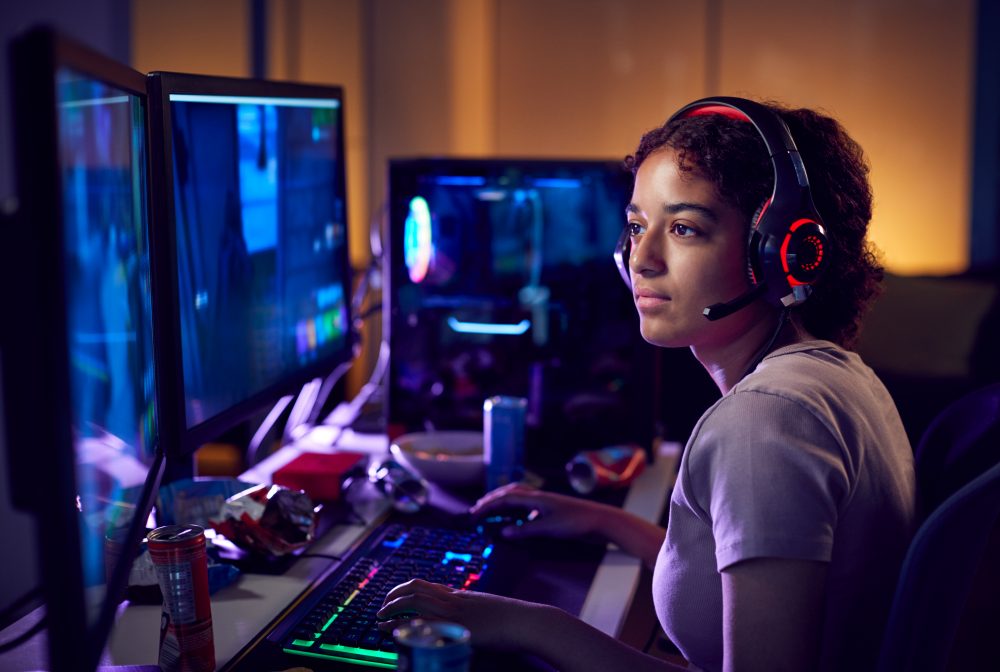
For dedicated gamers, pushing the boundaries of performance is an ever-present pursuit. While powerful hardware forms the foundation, cooling and overclocking play crucial roles in unlocking a PC’s true potential. At PC Geeks, we understand the intricate relationship between these elements and are here to guide you through the importance of cooling and overclocking for gaming PCs.
Understanding Cooling: The Unsung Hero
Imagine a car engine performing at peak capacity without a proper cooling system. The outcome wouldn’t be pretty, right? The same principle applies to your gaming PC. Moreover, when components like the CPU and GPU work under heavy loads, they generate significant heat. If left unchecked, this heat can lead to:
Performance throttling: As a safety measure, your PC automatically reduces clock speeds to prevent overheating, resulting in performance drops.
System instability: Excessive heat can cause crashes, freezes, and unexpected shutdowns, disrupting your gameplay experience.
Component damage: In extreme cases, prolonged exposure to high temperatures can permanently damage your hardware, leading to costly repairs or replacements.
Therefore, effective cooling is paramount for maintaining optimal performance, system stability, and the longevity of your gaming PC.
Cooling Solutions at PC Geeks
At PC Geeks, we offer a variety of cooling solutions to cater to different needs and budgets:
Air Cooling: A cost-effective option utilizing fans and heatsinks to dissipate heat away from components. Suitable for most mainstream gaming PCs.
Liquid Cooling: Provides superior cooling performance by transferring heat using water or coolant. Ideal for high-performance systems and overclocking enthusiasts.
Our experienced technicians can help you choose the most appropriate cooling solution based on your specific hardware configuration and thermal requirements.
Overclocking: Pushing the Limits (with Caution)
Overclocking involves manually increasing the clock speed of your CPU or GPU beyond their factory settings. Furthermore, this can result in:
Increased performance: By pushing components to operate at higher speeds, you can potentially squeeze out additional frames per second in games.
Enhanced responsiveness: Overclocking can lead to smoother gameplay and faster loading times.
However, it’s crucial to understand the inherent risks involved:
Increased heat generation: Overclocking inherently produces more heat, placing additional stress on your cooling system.
Potential instability: Improper overclocking can lead to system crashes and instability, requiring careful adjustments.
Reduced lifespan: Overclocking components for extended periods can potentially shorten their lifespan.
Therefore, overclocking is recommended for experienced users who are comfortable with the risks and possess adequate cooling solutions.
At PC Geeks, we advise against overclocking for novice users. Our team can guide you through the process if you’re confident in your technical expertise and understand the potential consequences.
The Takeaway: Finding the Right Balance
To conclude, while the importance of cooling and overclocking for gaming PCs plays a significant role in optimizing their performance, it’s crucial to find the right balance. Moreover, prioritizing effective cooling is essential for ensuring system stability and component longevity, regardless of whether you choose to overclock or not.
Overall, if you’re looking to enhance your gaming experience, PC Geeks can help you achieve the optimal balance between performance and stability. Furthermore, our team of experts can recommend suitable cooling solutions and guide you through the overclocking process, if applicable, ensuring your gaming PC operates at its peak potential. Contact PC Geeks today to discuss your specific needs and unlock the true power of your custom gaming PC!






